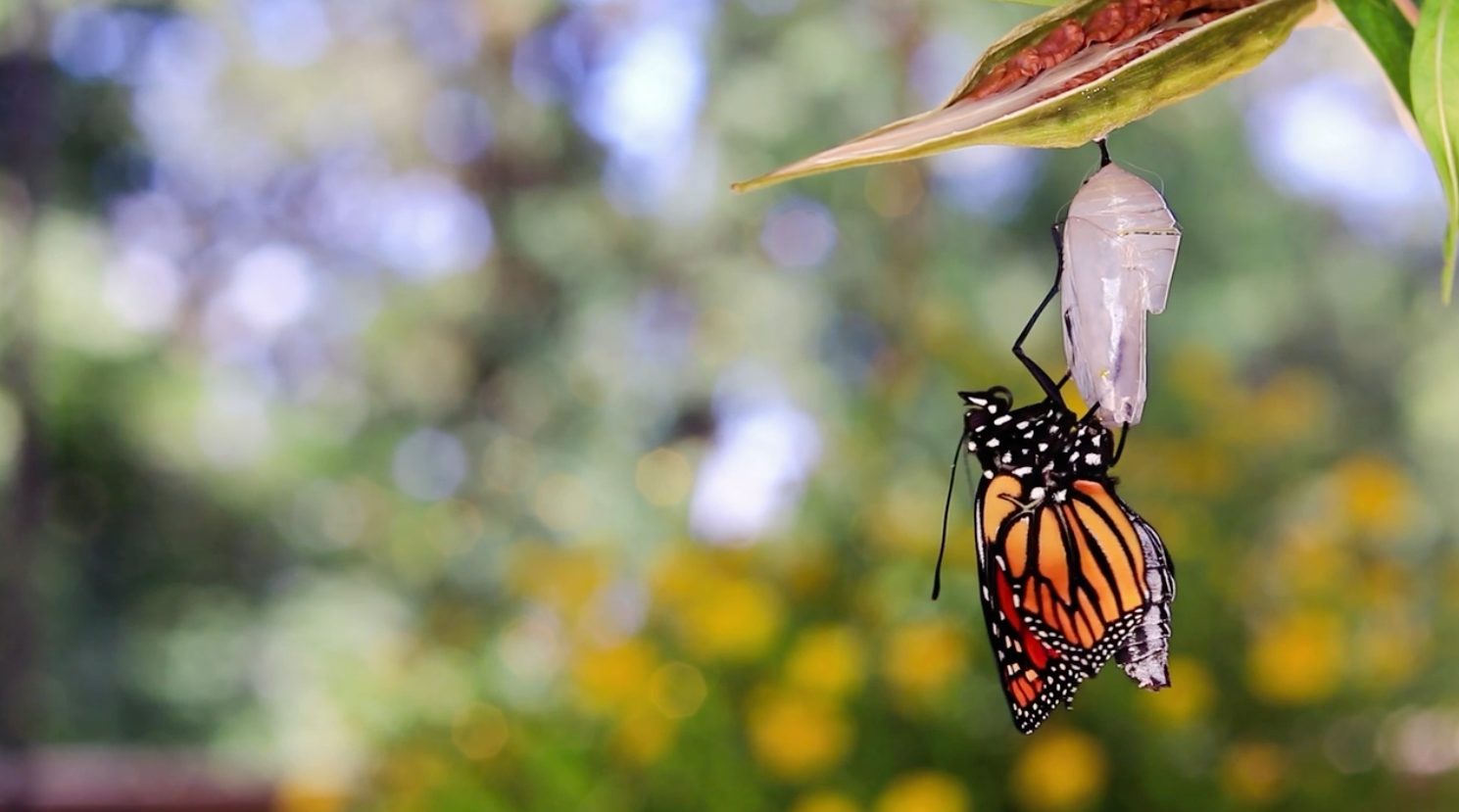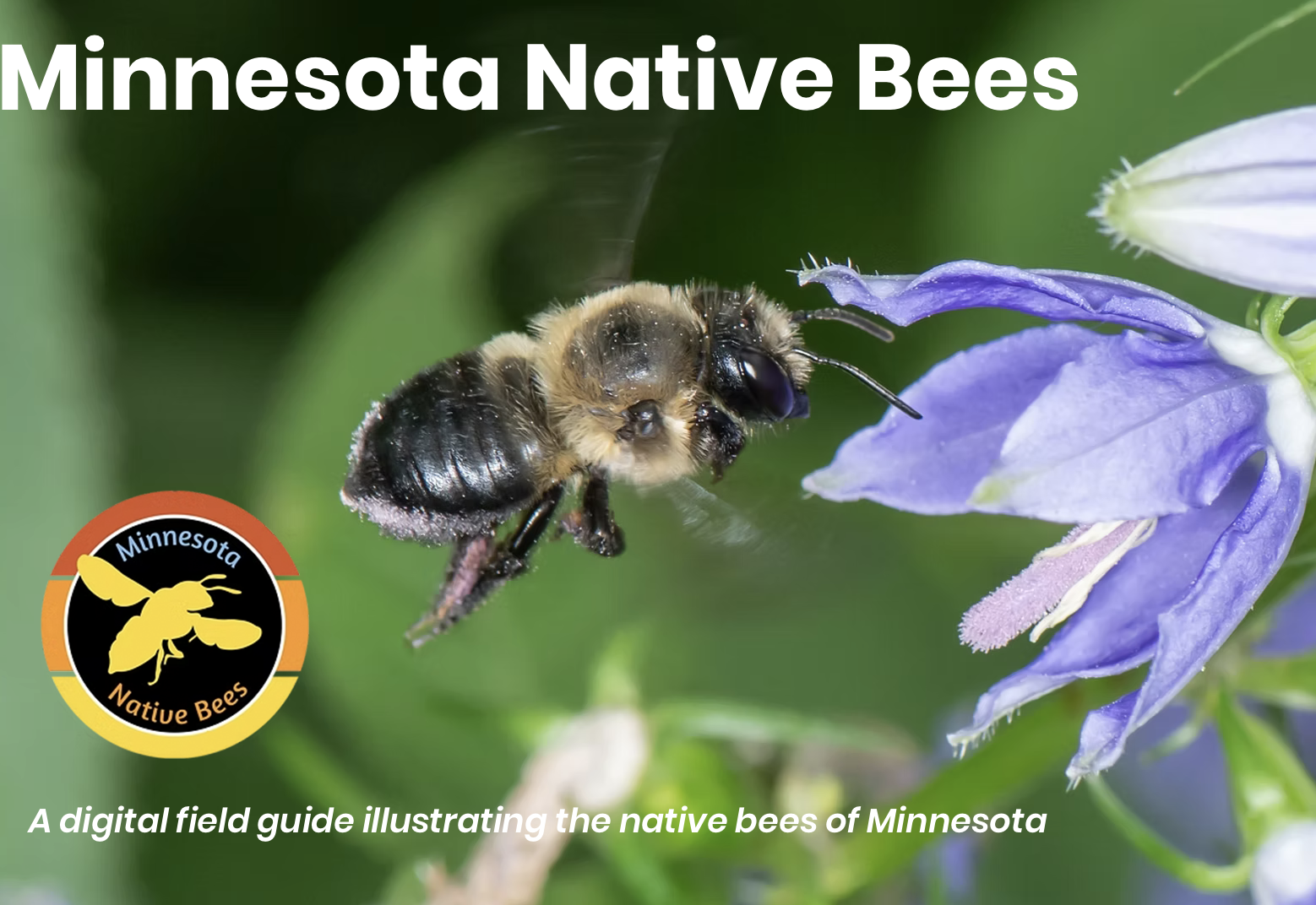
Bees and Pollinators
Pollinator Conservation
Pollinators are a keystone species in most terrestrial ecosystems, crucial for biodiversity and pollination of our most nutritious foods. They are in serious decline due largely to excessive pesticide use, habitat loss and land fragmentation. Introduced diseases and climate change also contribute to ongoing pollinator decline. Human intervention is the overall cause of this problem and we also know the solutions to this crisis, but we need to act now. Understanding pollinators and sharing knowledge is a big step towards saving this important keystone species.
How to Help Pollinators in your Yard and Community
Pesticides are a driving factor in pollinator decline. Cease insecticide use, especially neonicotinoid insecticides.
Habitat loss is a key factor in pollinator decline. Plant native host and nectar plants.
Wait to do spring yard clean-up until May to allow for overwintering pollinators.
Leave some untidy nesting areas such as logs, brush and mulch piles.
Tolerate some pollinator flowers like dandelions and ground ivy.
Accept some plant and insect damage - nature knows how to keep a balance.
Replace turf with native flowers, pollinator lawns, veggie gardens or prairie.
Ask your plant supplier or garden center for native plants that are NOT treated with insecticides.
Ask your garden center to remove chemical insecticides and to sell pesticide-free plants.
Make your workplace, school and neighborhood pollinator-friendly.
Ask your city and county to pass a pollinator protection resolution.
Tell your decision-makers to support strong pollinator policies.
Support farmers who transition away from using pesticides.
Educate yourself so you can educator others.
Choose to purchase organic food and other products such as clothing and bedding.
Create an environmental commission in your community.
Immerse kids in the wonderment of the natural world.
Bee a volunteer or sponsor for Pollinator Friendly Alliance.
Critical Species Population Status
-
Pollinators
Over one-fifth of native North American pollinators are at elevated risk of extinction. The main drivers of pollinator decline are pesticides, intensive agriculture, human development and land degradation, and habitat loss.
A 2022 survey of terrestrial and freshwater invertebrates found 30% of species are or have been threatened with extinction.
The loss of insect populations also threatens migratory birds.

-
Native Bees
We do not know the status of most bees because there are so many species. Wild bees are in decline most in highly industrial agricultural areas. A recent analysis shows 28% of bees are threatened. There are approximately 3600 native bee species to North America. 90 percent of native bees live solitary lives (do not live in groups). In 2022, 508 bee species were counted in Minnesota. The Rusty patched bumble bee is listed as an endangered species.
Knowing which species are declining, where they occur, and why they are declining is critical for focusing management interventions where they will most benefit at-risk species. Yet to date, few native insect pollinators of North America other than bumble bees (Bombus spp., Hymenoptera) and butterflies (Lepidoptera) have been assessed for extinction risk. Read the 2025 Study on North American Pollinators here, by NatureServe & Xerces Society.

-
Monarch Butterfly
90% of monarchs are gone in the U.S. The Eastern count in Mexico monarchs occupied only 2.2 acres during 2023-2024 season, 59% less than the previous year. The Western population is a sharp decline in 2023-2024 of just 9,119 total monarchs compared to millions in 1980’s. The monarch is proposed as an Endangered Species in the U.S.
A 2025 study showed that we are losing butterflies at a rate of 1.3% per year in the U.S.; more than one-fifth of our butterflies disappeared between 2000 and 2020. Over 40% of assessed species fell in numbers by 50% or more - and 24 species suffered more than 90% losses. Read the State of Butterflies in the United States report by Xerces Society here.

-
Birds and Terrestrial Wildlife
50% of US birds face extinction by 2100. 2.9 billion breeding adult birds have been lost from the United States and Canada.
A study of North American birds: we've lost more than a quarter of our birdlife since 1970. Of the nearly 3 billion birds lost, 90% came from just 12 bird families, including sparrows, warblers, finches, and swallows.
There has been a catastrophic 73% decline in the average size of monitored wildlife populations in just 50 years (1970-2020). Causes of decline are habitat loss, land degradation, hunting and fishing, and climate change. Birds have increased overall in wetlands, an exception that shows the way forward for saving birds. State of the Birds Report, U.S. 2022 by American Bird Conservancy.

Links to Resources
Pollinator Conservation
How to Help Pollinators Pollinator Friendly Alliance
Bee ID & News Bees in Your Backyard
Bees and Climate Change Pollinator Partnership
How Neonicotinoids Kill Bees Xerces Society
State-Level Pollinator Protections National Causus of Environemntal Legislators
Pollinator Identification
Minnesota Native Bee Identification, BeeMN.org
Bees of the U.S. Xerces
Minnesota bees U of Minnesota
Different Types of Bees ID Treehugger
Wild Bee ID & Conservation U of M Dr. Krischik
Wild Bee ID Cards Great Sunflower
Best Practices and How To’s
Building a Bee Hotel U of Michigan
Backyard Best Practices U of Minnesota, Dr. Krischik
Butterfly and Moth Soft Landing Heather Holm
Backyard Solitary Beekeeping Bee to Bloom
Rearing Monarchs Monarch Joint Venture
Host & Nectar Plants for Lepidoptera U of Minnesota
Pollinator Programs and Online Tools
Videos, Podcasts
Raising solitary native bees Crown Bees
Magnificant Monarchs Video Karl Foord
Honey Bee Obsura with Kim Flottum
PolliNation Podcast Oregon State U
Books
Pollinator ID, Habitat Handouts Heather Holm
WASPS Heather Holm
Pollinators of Native Plants Heather Holm
Bees ID Books & Posters Bees in Your Backyard
Bumbelees Behavior, Ecology and Conservation David Goulson
Raising Bumble Bees Elaine Evans
The Biology of the Honey Bee Mark Winston
Honey Bee Democracy Thomas Seeley
The Beekeeper's Handbook Diana Sammataro











